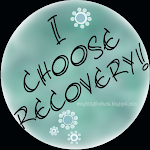Eating Disorders News and Views: January 10, 2012
Binge Eating Disorder May Be Added to DSM-5
The DSM-5 Feeding and Eating Disorders Work Group is proposing a number of diagnostic changes. Here’s an overview.
Criteria for “binge eating disorder,” the fruit of an explosion of research on the subject since publication of DSM-IV, are being proposed for inclusion in DSM-5. The addition of the disorder, defined as recurrent eating of “an amount of food that is definitely larger than most people would eat in a similar period of time under similar circumstances,” is among the major changes proposed for the chapter on feeding and eating disorders. Virtually identical criteria for binge eating disorder were listed in the appendix to the chapter in DSM-IV but it was not included as an official diagnosis.
Read Binge Eating Disorder DSM-5 in full.
Women with Anorexia May Have Categorical Learning Deficiencies
Recent research has focused on examining the cognitive abilities of people with eating issues and in particular, of women with anorexia nervosa (AN). “These studies are important for a better understanding of AN given the possibility that cognitive deficits may (a) contribute to the development and persistence of AN, (b) result from neurological changes associated with the disease, or (c) influence the choice of treatment approaches,” said Megan E. Shott of the Department of Psychiatry at the University of Colorado. More recent studies have discovered that although individuals with AN may have deficits in cognitive functioning, many of them also have very high IQs.
Read Categorical Learning Disabilities in full.
When Eating Healthy Turns Obsessive
In a vegan café in New York City, Nisha Moodley pushes a glass crusted with the remnants of a berry-açai-almond milk smoothie across the table and begins listing the foods she excised from her diet six years ago.
"Factory-farmed meats; hormone-laden dairy; conventional non-organic fruits and vegetables; anything hydrogenated; anything microwaved," the slender 32-year-old health coach says. "I would not eat irradiated food; charred or blackened foods; artificial coloring, flavoring, or sweetener; MSG; white rice; sugar; table salt; or anything canned.
Back then, a typical breakfast for Moodley consisted of buckwheat mixed with seaweed, raw cacao powder, flax oil, and flax seeds. Lunch was usually homemade brown rice with lentils, fresh vegetables, and kale, followed by a mid-afternoon snack of homemade flax-seed-and-buckwheat crackers. And for dinner, a salad with garbanzo beans, avocado, carrots, beets, and mushrooms.
Moodley initially adopted this diet to address recurring bad digestion. But her commitment to healthy eating -- something to be commended, ordinarily -- turned into an obsession that took over her life. "I was terrified of food that didn't fit within my idea of what was healthy," Moodley says. "I was terrified of cancer, of dying."
Read Healthy Turns Obsessive in full
Is Binge Eating a Mental Disorder?
According to the latest draft of the Diagnostic and Statistical Manual of Mental Disorders ( DSM) in the American Psychiatric Association (APA), binge eating is a mental disorder.
Health professionals refer to this document to conclude whether an individual is suffering from a mental disorder or not. In the manual, binge eating shares place with grave medical conditions such as substance-related disorders, sleep disorders and anxiety disorders. But does this mean that if you chug cheese burgers, you are suffering from a clinical eating disorder? Let's find out...
Binge eating depicts a lack of control over one's eating habits, a feeling where one has no control over how much or how many times one is eating.
The top characteristics which distinguish binge eating from normal eating are:
- Eating food much more quickly than normal.
- Eating food until feeling awkwardly full.
- Consuming large amounts of food when not feeling hungry.
- Consuming food in a separate room, or in isolation so as not to feel embarrassed by the quantity or style of eating.
- A binge eater tends to feel very appalled with oneself. A deep feeling of depression or guilt lingers on after the completion of an eating spree.
Here are a few tried and tested ways to avoid binge eating:
- Distract yourself from the food and indulge in an activity you love. Rush for a warm water bath when you think food is overpowering you. Go for a nice chocolate pedicure session or may be light some nice scented candles in your room and play some light music rather than eating.
- In other times, you might find this a tad bit boring, but sip small amounts of water whenever you feel you are in the mood to indulge.
Read Binge Eating/Mental Disorder in full
Emirati Woman Recounts How She Chose Life Over Anorexia
Sitting in the lounge of a Dubai hotel, Samira Murshid Al Romaithi could be any other 28-year-old woman. Clear-skinned and bright-eyed, she smiles as she greets me, exposing a set of pearly white teeth and a long mane of dark hair that falls over a pretty, sensitive face.
Confident without being overbearing, articulate and charming, this is a woman who holds a senior position with the Government in Abu Dhabi; who is the vice president of the UAE Jiu-Jitsu committee and a blue-belt competitor; who is about to launch her own business selling health food snacks; and who not only has a BA and a master's but also is halfway through another master's, in diplomacy and international relations. Her zest for life is obvious.
It's almost impossible to imagine she once suffered from anorexia.
Anorexia - a word that conjures up images of skeletal-like young women and that many presume is vanity in the extreme, an attempt to achieve the perfect body gone terribly wrong and an example of just how askew our priorities have become in the complicated modern world.
But there is, of course, more to this insidious disease that (along with other eating disorders such as bulimia) is still a taboo subject in many parts of the world and especially so in the UAE.
Read Emirati Woman in full
People With Eating Disorders Still suffering on Sidelines
BY THE time she was finally admitted to hospital, Noelle Graham's heart was on the point of giving out. Years of extreme dieting, purging and vomiting had ravaged the very substance of her body, leaving her blood so low in potassium it could no longer sustain a regular pulse.
That four-month admission, in 2009, was the culmination of nearly a decade of disordered eating that began when Ms Graham was only 12 - starting benignly enough as a decision to become a vegan and escalating through compulsive exercise, deliberate vomiting and long periods of starvation.
Still battling not to relapse, Ms Graham sees a psychiatrist and has had to return many times to hospital, where she said doctors typically, ''stick me on a drip and rehydrate me, then send me home''.
Read People With Eating Disorders in full
New Approach to Diagnosing Anorexia Nervosa
January 9, 2012
A new approach for diagnosing patients with anorexia nervosa has been developed at the University of Sydney. The approach could have a significant impact on the treatment and recovery of sufferers, as well as reducing the strain on public health.
As reported in the Sydney Morning Herald, Professor Stephen Touyz, of the University of Sydney's Centre for Eating and Dieting Disorders, advocates a move to diagnosing anorexia nervosa in stages of severity, similar to the method used for diagnosing cancer.
"At the moment, you can only diagnose anorexia nervosa if you have the illness quite severely already," says Professor Touyz.
"By the time you have anorexia nervosa, and people can see that you've got it, you're an extremely ill person. This is an illness where 20 percent of people who are diagnosed could potentially die."
Professor Touyz's proposed system of stages would introduce the diagnosis of stage one anorexia nervosa for patients who clearly already suffer from the illness but do not yet meet its official diagnostic criteria.
Read New Approach in full
If you liked this post please take a moment to share it:
Labels:
ana mia,
anorexia news,
BED news,
binge purge,
bulimia news,
eating disorder news,
EDNOS news
Subscribe to:
Post Comments (Atom)























0 comments:
Post a Comment